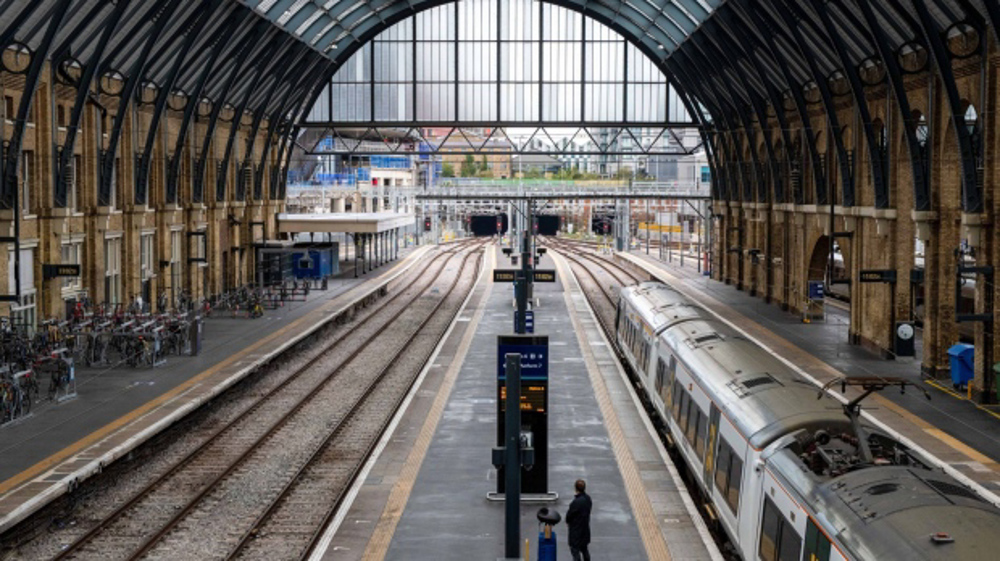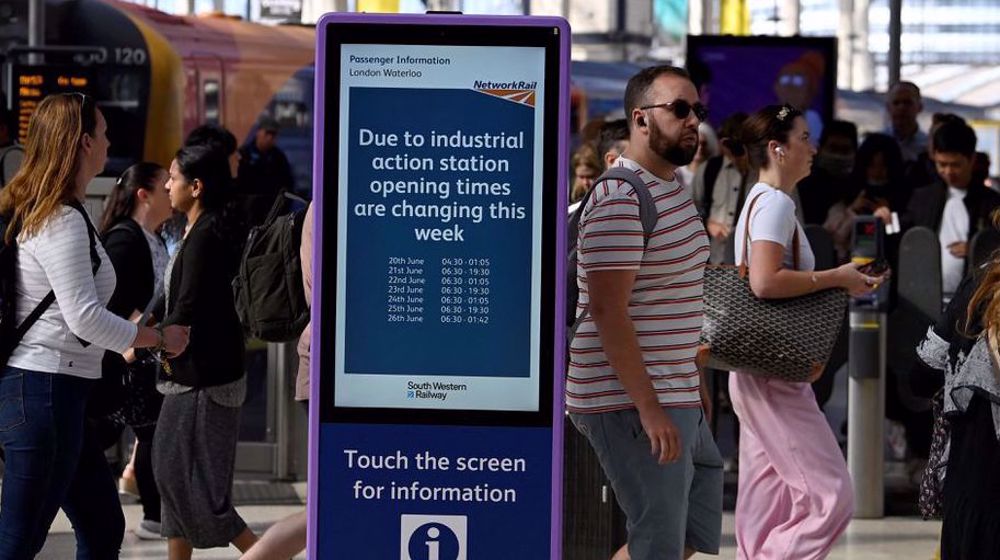British rail workers start new year with strike
British rail passengers have been warned of disruption in the start of New Year, as rail workers spark the first strike in 2023 starting on Tuesday.
An estimated one million days of working days were lost in strike action in December alone, as the wave of strikes has dragged into the New Year from last summer.
Teachers are also due to go on strike in Scotland next week. "Due to industrial action, there will be significantly reduced train services across the railway until Sunday 8 January," Network Rail said.
Nurses, airport staff, paramedics and postal workers are also joining the strikes as Britain is in the grip of its worst run of worker unrest since Margaret Thatcher was in power in the 1980s.
A winter of widespread strikes in Britain has dealt a blow to people's daily life as well as the country's already struggling economy, showing no sign of stopping at the beginning of a new year as workers in most sectors demand higher pay to keep pace with inflation.
The British government has denied any effort to higher wages and announced it cannot afford to give public sector workers an inflation-matching rise.
Mick Lynch, head of the RMT rail union, said the government seemed content for the strikes to go ahead.
"All the parties involved know what needs to be done to get a settlement, but the government is blocking that," Lynch said.
Prime minister, Rishi Sunak, insists agreeing to raises could embed inflation, however, workers are asking for higher pay to keep pace with inflation that is hovering around 40-year highs, reaching 10.7% in November.
D-8’s role in Iran’s economy after Cairo summit
China slams US as ‘war-addicted’ threat to global security
China ‘firmly opposes’ US military aid to Taiwan
VIDEO | Press TV's News Headlines
President Yoon Suk Yeol to be removed from office
At least 19 Gazans killed by Israeli airstrikes since dawn: Medics
Leader: Iran neither has nor needs proxy forces
US fighter aircraft shot down ‘in friendly fire’ amid aggression on Yemen













 This makes it easy to access the Press TV website
This makes it easy to access the Press TV website